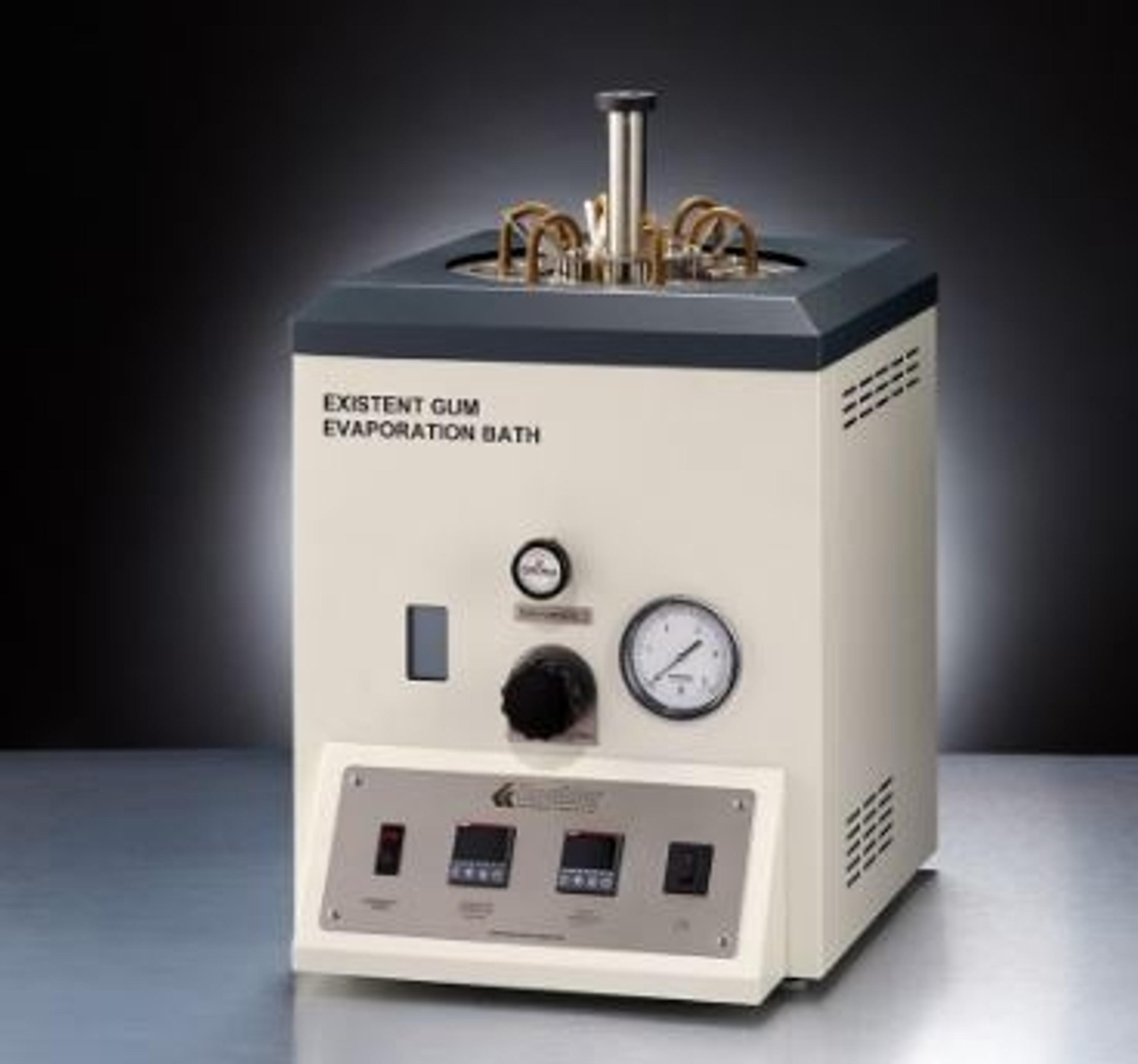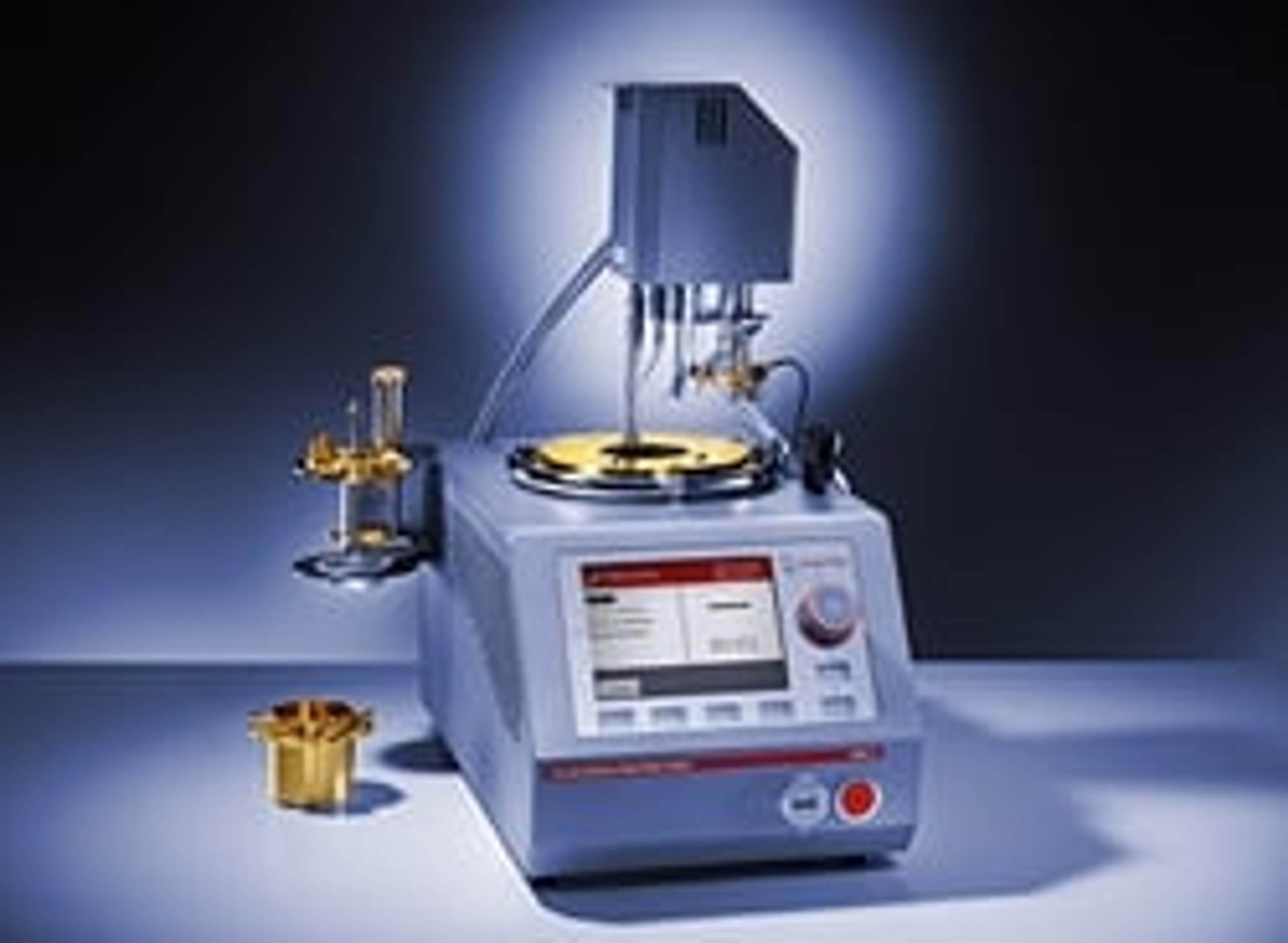‘Genuine lab equipment reviews give us confidence to try new products’
Melanie Thom, owner of Baere Aerospace Consulting, provides advice on how to tackle misinformation in science and how reviews help maximize equipment budget
19 May 2021

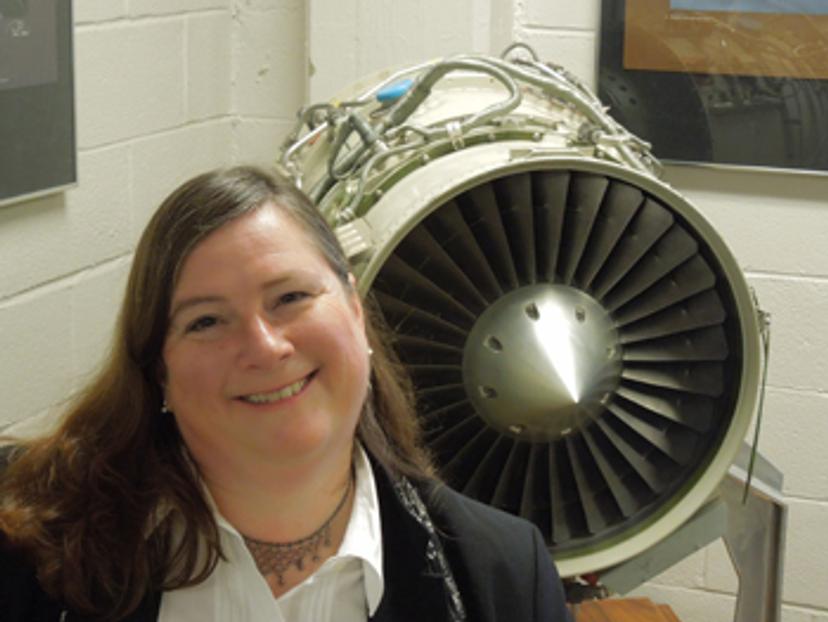
Lab product reviews can change the world by helping other scientists find the best equipment to accelerate their vital work. Here at SelectScience®, we are dedicated to promoting peer-to-peer communication that will make the difference – but we couldn’t do it without our esteemed reviewers. In this regular feature, we put the spotlight on some of our most dedicated and impactful reviewers and find out what inspires them to keep sharing their knowledge with the global scientific community.
This week’s ‘Reviewer in the Spotlight’ is Melanie Thom, analytical chemist and owner of Baere Aerospace Consulting in Indiana, USA. Her current efforts focus on unleaded aviation gasoline and the development and deployment of fully synthetic jet fuels for commercial aircraft. Here, Melanie tells us about her inspirations, the common communication challenges between scientists and engineers, and ways to tackle these challenges in this age of misinformation. Melanie also tells us how genuine user reviews give her confidence to step out of her comfort zone to try new lab products.
Tell me about your role and your current research
I am an analytical chemist by training and fortune, specifically an FT-IR chemist. I provide material compatibility and design support to manufacturers, distributors, and end-users on systems using aviation fuels and lubricants. I am also the owner of my consulting company. Right now, I am working on the efforts to develop unleaded aviation gasoline, and the efforts to approve and use fully synthetic jet fuels on commercial aircraft.
Who/what inspired you to become a scientist?
I actually fell into it through a comedy of events. My father is a chemist and in the 1980s when I was trying to decide what I wanted to be, he told me don’t be a chemist, be an engineer. They do the same job and get paid twice as much. So, I headed off to be an engineer. I thought I’d be an electrical engineer because in the ‘80s that was THE career. But I found that I didn’t like my courses. I did like the chemistry courses, so I focused on chemical engineering. To be honest, I hated the dryness of the major. I truly loved my chemistry classes, so despite his best efforts, I followed in my dad’s footsteps after all. To top the cake, I eventually got his job when he was promoted!
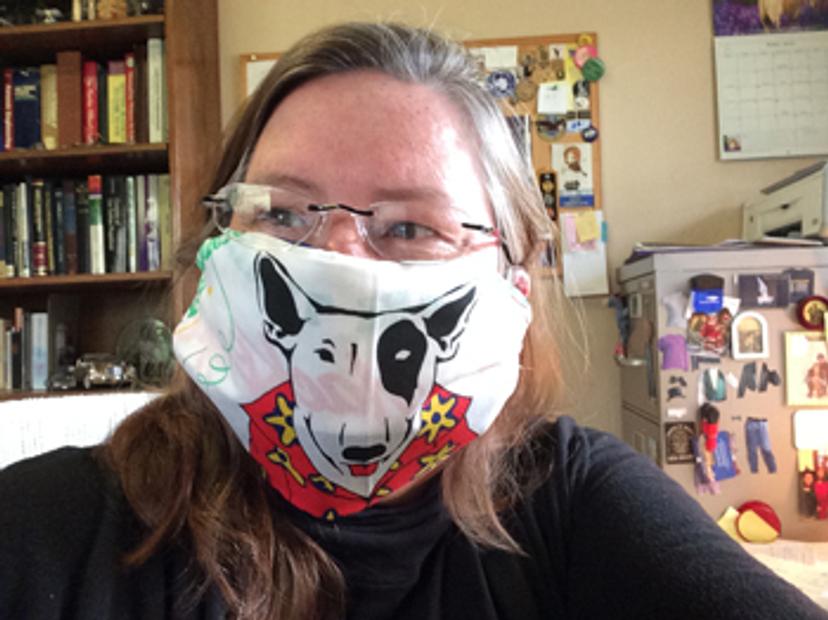
What have been your biggest challenges as a scientist?
I have had a very blessed career. As a female in a male-dominated career path, everyone wants me to say, ‘being a female and being taken seriously was so hard.’ In reality, my colleagues have always taken me seriously and mentored me. Don’t get me wrong, there were a few stodgy old guys who had a potty mouth here and there, but my colleagues weren’t really an issue. I guess if I had to nail down a real challenge, it would be that I am a visual learner, I get it when I see it. In chemistry, that can be a bit of a challenge, so sometimes I struggle with technical education even now. I also get bored easily, so I had to find a career where I could do the science that I love and move on to the next question. Long-term research projects and I are not a good fit.
Why is communication vital in science?
When I am working with a group of engineers, they think of me as ‘the chemist’. When I am with a group of scientists, they think of me as ‘the engineer’. One of the reasons I believe I have been successful in my career is because I take the time to understand the words being used and what they mean to the audience. Some of the most basic miscommunications I have encountered come from two people, often arguing quite passionately, over a statement that was not a difference of reality, but a difference of communication. Once I am able to get them both to realize they are actually saying the same thing in two different ‘languages’ (science vs engineering) many of those disagreements are solved. It takes active communication to make that work and it does not help that in science we have a very precise set of vocabulary which uses many of the same terms and variables as the engineers, but in very different ways. Then, when both of us try to share what we know with others, we may as well be speaking ancient Latin! If we cannot communicate our findings or views to others, there is no point in doing science.
How can we tackle misinformation in science?
I think first and foremost, slow down. We tend to think faster than we can speak so we do not do a good job of explaining ourselves. As I said before, we have our own language and forget others do not share it. One thing I am constantly reminded of is that those basic things in science which are so internalized to me because they are so foundational, others do not share that foundation. So yes, one needs to remember to say out loud those things that you might assume everyone already knows. I find that as everything moves faster, and people tend to communicate in ‘text speak’ or emojis, or abbreviated chats, that we have increased our likelihood of misinformation. Even in emails that are quite long and verbose, we have forgotten that words have meaning. We do not slow down and read what we just wrote. So many miscommunications can be avoided by just stopping and seeing if what you said makes sense and says what you intended. Say what you want to say, use all the words to say it, and do not feel like you have to add a lot of extraneous explanation and fluff.
Why do you think lab equipment reviews are important?
When the time comes to explain a piece of equipment, a person of similar expertise as you is more likely to have found both the good and the bad. The sales and marketing department is going to sing a product’s praises and downplay the challenges, whereas a researcher is going to let me know the truth. As a small business owner, I need to maximize my equipment dollar and get a unit that is enough to do the job, even if it isn’t the top of the line. Without reviews, it is very difficult to compare more than just the capabilities. We also want the actual ease of use, cost of ownership, and level of support. Sometimes we go with the brand name we recognize, whereas real reviews give us the confidence to try a different brand because it could be a better fit.
What is the most innovative piece of lab equipment you use?
I own and maintain old school equipment like a Pensky-Martens manual flash point tester and a Fisher Tensiomat, equipment that is bulletproof, inexpensive to run, and provides my clients with basic answers, inexpensively. Granted, the care can be challenging, but newer is not always better. I do supplement my old-school techniques with some slick contemporary support equipment. I purchased a Lafil 300 vacuum filtration setup which is so compact and perfect for my one-off projects that I actually giggled with glee when I found it.
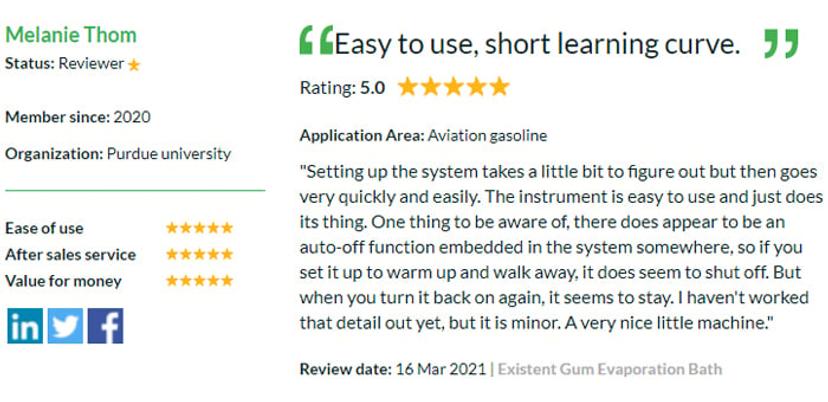
What do you envision for your future?
I have been asked if I am concerned that since petroleum jet fuel is going away, that I won’t have a job. Actually, I think I am going to continue to be busier than ever. That is partly because as a science history buff, I have spent time understanding how we got where we are, including the analytical sciences that have supported that history. Now that we are re-imagining that field, I suspect I am going to remain busy because I know where we came from, understand what we can do today, and I can make the link between the two. Does this mean more or less time in the lab? I don’t know, but I hope there will continue to be opportunities to connect what we used to do in the lab back then with what we can do today.
Would you like to feature in our Reviewer Spotlight? Write your review here to be in with a chance >>

